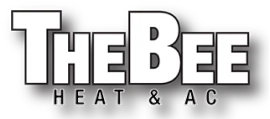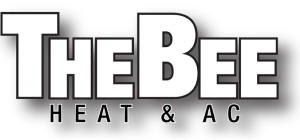As the summer days wane and the balmy nights give way to the crisp and cool air of autumn, many homeowners begin to shift their focus indoors. One of the most important yet often overlooked preparations for the upcoming cooler months is tuning up the home heating or HVAC (Heating, Ventilation, and Air Conditioning) system. In this article, we will discuss the significance of this preparatory step and elucidate why it is an imperative measure for every homeowner.
On This Article
hide
1)
Efficiency and Energy Savings
2)
Prolonged Equipment Life
3)
Improved Indoor Air Quality
4)
Prevent any Unexpected Breakdowns
5)
Safety Concerns
6)
Environmentally Responsible
7)
What Does an HVAC Tune-Up Include?
8)
Conclusion
9)
FAQs
9.1)
Why is fall the recommended time for an HVAC tune-up?
9.2)
How often should I replace or clean the filters in my HVAC system?
9.3)
What’s the difference between an HVAC tune-up and regular maintenance?
9.4)
If my HVAC system seems to be working fine, do I still need a tune-up?
9.5)
Can I perform an HVAC tune-up myself, or should I hire a professional?
Efficiency and Energy Savings
First and foremost, a well-tuned HVAC system operates at its peak efficiency. When components are clean, lubricated, and in perfect working order, the system uses less energy to generate the desired temperature. This directly translates to significant savings on your utility bills. According to the U.S. Department of Energy, simply replacing a dirty, clogged filter with a clean one can lower an air conditioner’s energy consumption by 5% to 15%.
Prolonged Equipment Life
Just like any piece of machinery, consistent maintenance ensures a longer lifespan. When your HVAC system is running optimally, it experiences less wear and tear. For example, a furnace that doesn’t have to work as hard because its filters are clean and its vents are unblocked will invariably last longer than one that’s constantly straining to function.
Improved Indoor Air Quality
One of the often-underappreciated benefits of a tuned-up HVAC system is the positive impact on indoor air quality. Dirty coils and filters not only hinder system efficiency but also circulate dust, pollen, and other pollutants inside your home. Ensuring that these components are clean before fall will promote a healthier living environment, reducing the risk of allergies and respiratory issues among the inhabitants.
Prevent any Unexpected Breakdowns
Imagine this: It’s a chilly fall evening, and suddenly your heating system breaks down. The discomfort, not to mention the potential cost of emergency repairs, is a situation most homeowners would like to avoid. Regularly scheduled tune-ups can identify and rectify minor issues before they escalate into major, costly problems.
Safety Concerns
A malfunctioning HVAC system isn’t just a threat to your comfort—it can also pose safety risks. For instance, a furnace that’s not functioning properly might produce carbon monoxide, an odorless and colorless gas that can be deadly at high levels. Ensuring your heating system is in top shape before the cold sets in is not just a matter of comfort but of safety.
Environmentally Responsible
A more efficient HVAC system doesn’t just mean savings for you; it also translates to reduced energy consumption and thus a smaller carbon footprint. At a time when concerns about climate change and environmental sustainability are paramount, ensuring that your HVAC system is running at its best is an ecologically responsible choice.
What Does an HVAC Tune-Up Include?
For those unfamiliar, an HVAC tune-up generally involves the following:
Inspection of all system components: This includes checking for wear and tear, ensuring no components are malfunctioning, and identifying potential problem areas.
Cleaning: Filters, coils, and other vital parts are thoroughly cleaned to ensure optimal function and improve air quality.
Lubrication: Moving parts that aren’t lubricated can wear out more quickly. Proper lubrication ensures smoother operation and prolongs the life of these components.
Thermostat calibration: This ensures that the temperature you set is the temperature you get.
Checking system controls: This ensures safe and proper operation.
Refrigerant check (for systems with AC components): Ensuring your system has the right amount of refrigerant is key to its efficient operation.
Conclusion
In conclusion, tuning up your home heating or HVAC system before the fall season is not just a recommended task—it’s a necessary endeavor. By ensuring your system is at its best, you not only ensure the comfort and safety of your household but also save money, prolong the life of your system, and make an environmentally responsible choice.
As autumn approaches, homeowners should make it a priority to schedule an HVAC tune-up. The benefits, both immediate and long-term, far outweigh the minimal costs associated with this preventive maintenance. Remember, a stitch in time saves nine; in this context, a tune-up in time saves dollars and ensures peace of mind.
FAQs
Why is fall the recommended time for an HVAC tune-up?
Fall is the transitional period between the hot summer months and the cold winter season. By tuning up your HVAC system before fall, you ensure that it’s in optimal condition to handle the demands of the cooler months ahead. It’s a proactive step to avoid potential issues during times when you heavily rely on your heating system.
How often should I replace or clean the filters in my HVAC system?
The U.S. Department of Energy recommends checking your air filter every month, especially during heavy use months (winter and summer). If the filter looks dirty, it should be changed. At a minimum, filters should be changed every three months, but families with pets or those living in dustier environments might need more frequent replacements.
What’s the difference between an HVAC tune-up and regular maintenance?
A tune-up is a comprehensive check of your HVAC system that typically includes cleaning, inspecting, lubricating, and calibrating. While regular maintenance can include simple tasks like filter changes and basic checks, a tune-up is a more in-depth review and optimization of the entire system.
If my HVAC system seems to be working fine, do I still need a tune-up?
Yes, even if your system appears to be functioning well, a tune-up is beneficial. Many potential issues might not have visible or immediate symptoms. A tune-up can catch minor problems before they become significant, costly repairs, ensuring the longevity of your system and maintaining its efficiency.
Can I perform an HVAC tune-up myself, or should I hire a professional?
While there are basic maintenance tasks homeowners can do, like changing filters or cleaning vents, a comprehensive tune-up is best left to professionals. They possess the necessary tools, knowledge, and expertise to ensure your system is in its best condition and can identify potential problems that might be missed by an untrained eye.

